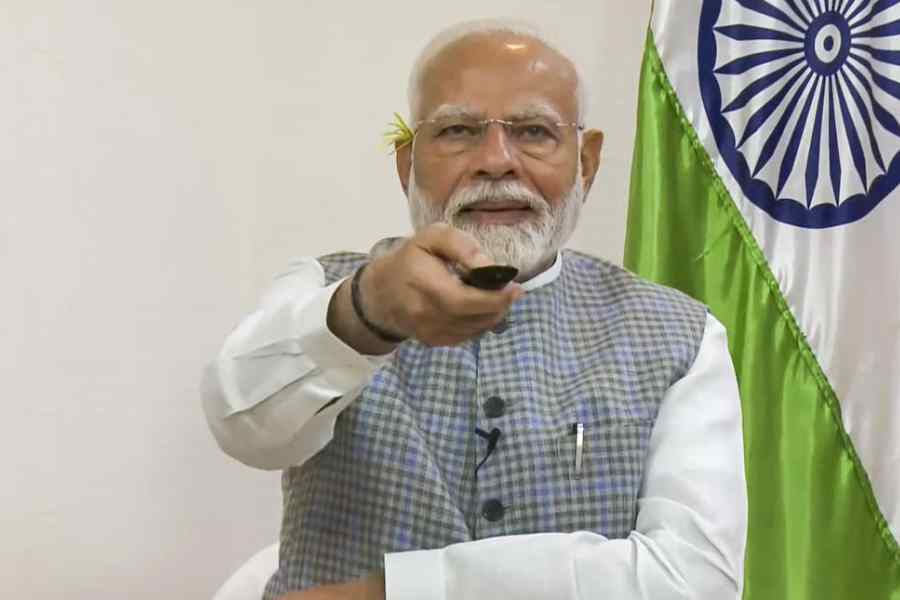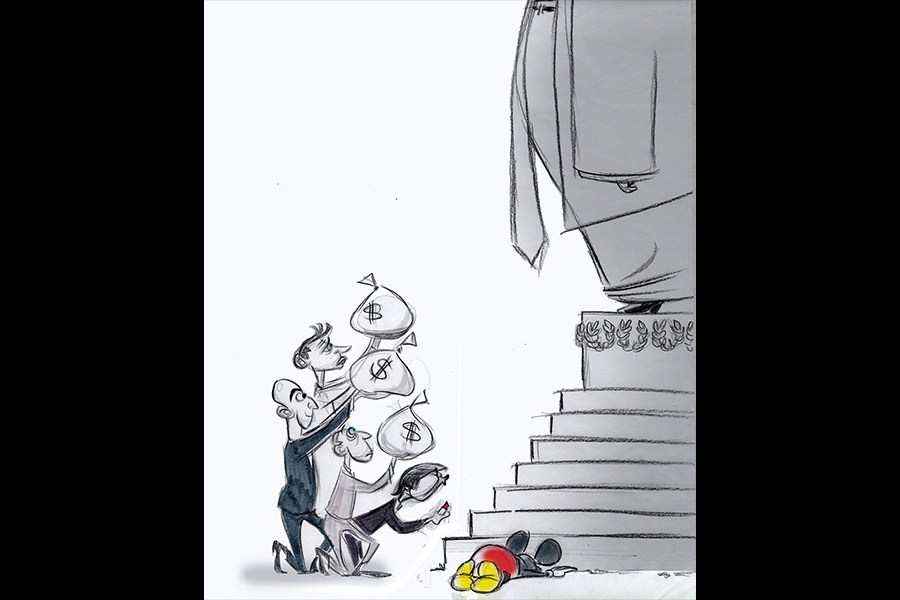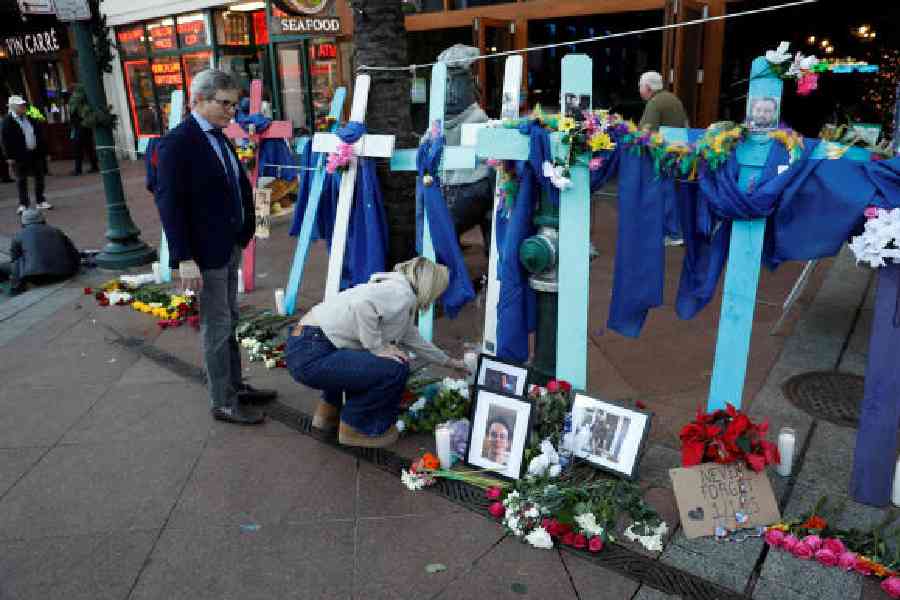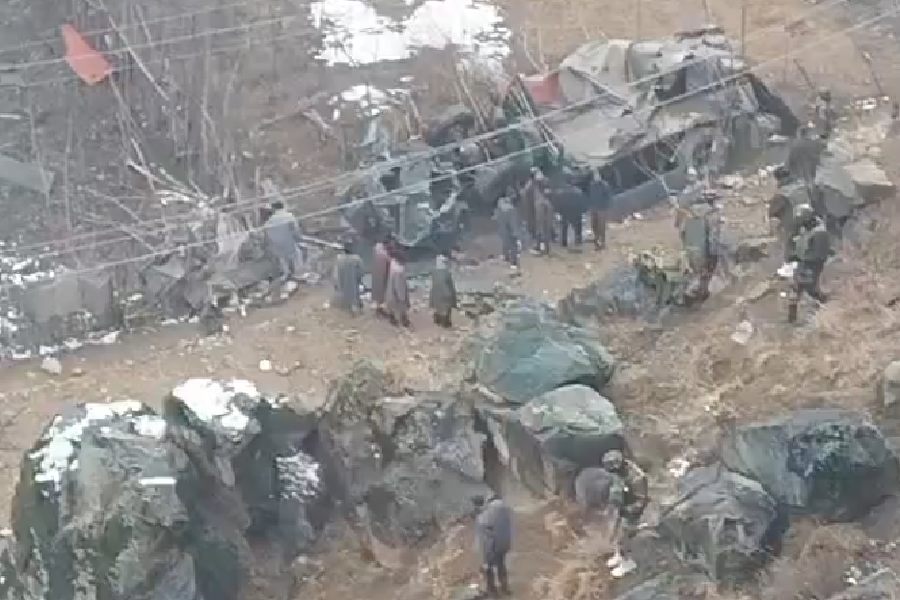The Centre has not set any target for Bengal to build houses under the Pradhan Mantri Awas Yojana-Gramin (PMAY-G) in the current financial year, drawing allegations of discrimination against the Opposition-ruled state that has lakhs of people who do not have houses of their own.
The decision by the ministry of rural development (MoRD) has come as a double whammy for the state with more than 11 lakh rural families struggling because of the Union government’s refusal to release funds to Bengal in the past two years after sanctioning housing support under the PMAY-G.
Social activists said the lack of a target this time meant that no new beneficiary would be added even though the state government had data on eligible homeless families. The action is being seen as discrimination for “political reasons”.
In the 2024-25 Union budget, finance minister Nirmala Sitharaman announced two crore more houses to be built across the country in the next five years under the PMAY-G. Under the initiative, 16 states which have readymade data on families without houses have been set targets for constructing 32 lakh houses in 2024-25. Bengal has been given no target for this year, two state government officials said.
Prime Minister Narendra Modi last week transferred the first instalment to new beneficiaries from the 16 states, including election-bound Jharkhand.
When the PMAY-G was launched in 2016 in place of the Indira Awas Yojana, the government set the target of building 2.95 crore houses by 2022. The beneficiaries were identified from data related to the Socio-Economic Caste Census (SECC) 2011.
The state governments had already been running their own housing schemes based on SECC data.
The MoRD asked the states to conduct an Awas Plus survey to identify new beneficiaries. The survey was conducted from January 2018 to March 2019. After verification of the potentially eligible households, the MoRD found 2.79 crore families without houses.
Of the overall mandate of 2.95 crore households, the MoRD provided housing support to 2.04 crore beneficiary households identified under the SECC and 91 lakh households identified under the Awas Plus. The Awas Plus database has data on about 1.4 crore families that need support. They include about 10 lakh families from Bengal.
The MoRD has selected 32 lakh families from the Awas Plus database but not any from Bengal. The MoRD did not even consult the Bengal government while allocating fresh targets to the states, officials said.
The MoRD had in 2022 stopped releasing funds for already sanctioned houses in Bengal citing alleged irregularities such as ineligible people being made beneficiaries. The MoRD is learnt to have taken the stand that it would neither release grants for the sanctioned houses nor set fresh targets from the state as long the alleged irregularities are not addressed by the Bengal government.
Social activist Nikhil Dey, who works with the Mazdoor Kisan Shakti Sangathan, a civil society group in Rajasthan, said the actions of the Union government would harm poor families in Bengal.
“It is a clear case of discrimination. It is a clear sign of the people of Bengal suffering because of the political battle between the state government and the Centre. If there have been irregularities, the government must take action against those responsible, including officials. But people’s rights cannot be violated. This is harming the people,” Dey said.
Social activist Anjali Bhardwaj, co-convener of the National Campaign for People’s Rights for Information, said the irregularities must be investigated in a time-bound manner.
“Denial of welfare benefits to a state citing irregularities is discriminatory action. The cases must be investigated and actions taken within a timeframe. But the welfare programmes should not be stalled,” she said.
The Telegraph sent an email to MoRD secretary Shailesh Kumar Singh asking why no fresh targets had been set for Bengal. His response is awaited.










